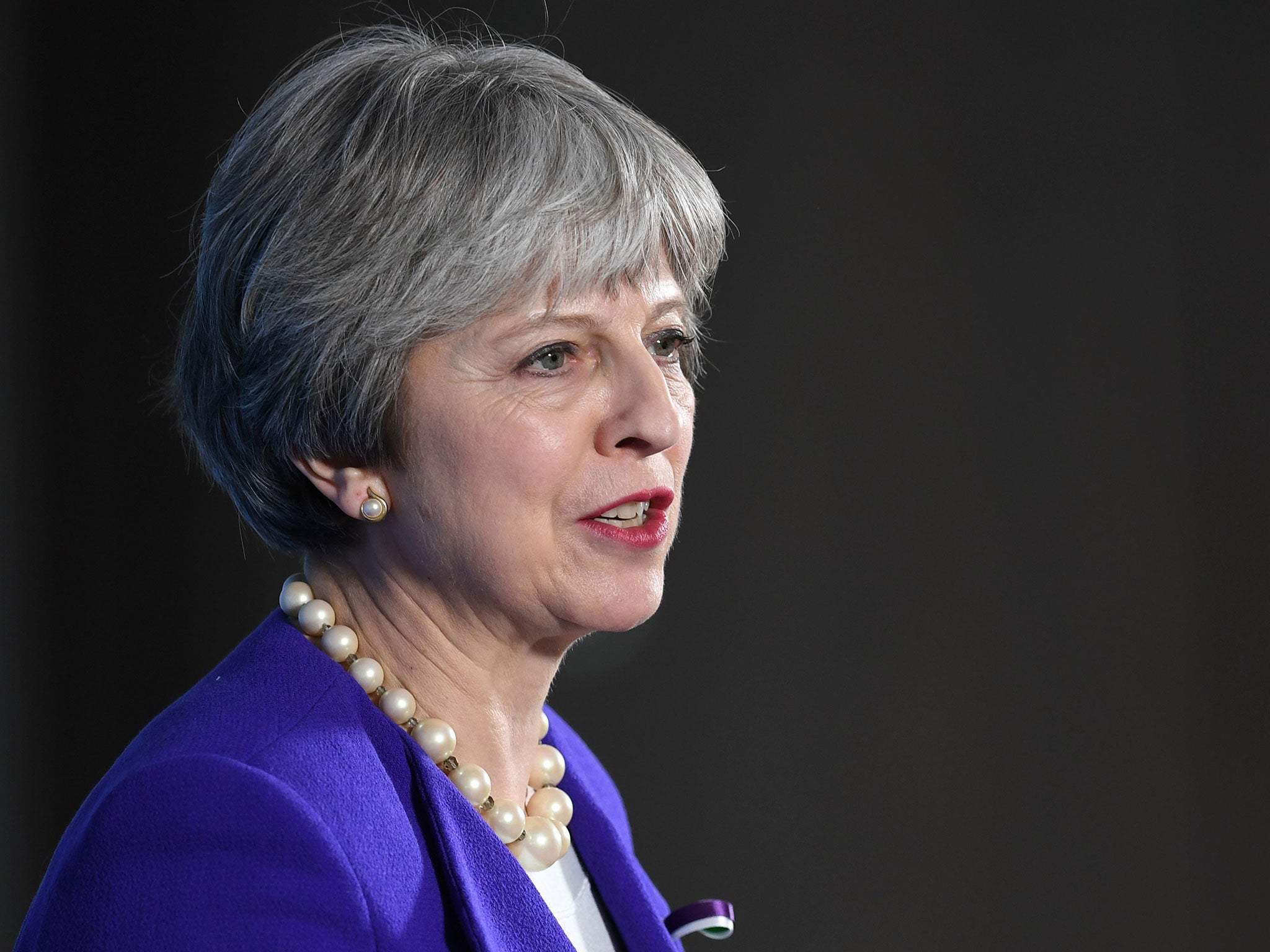Theresa May had a chance to look strong again with the gig economy report – why didn't she take it?
The absence of a Commons majority makes ministers wary of turning Matthew Taylor’s report into legislation. They probably feared that Labour would amend any Bill to further strengthen workers’ rights, with the help of a handful of Tory MPs


Another day, another opportunity missed by Theresa May to turn her rhetoric into action. When she became Prime Minister in July 2016, May deservedly won plaudits for her statement in Downing Street, in which she promised to tackle “burning injustice” and help the “just managing”. She rightly identified the lack of job security as a problem for many.
It seemed that May had learnt the right lesson from the EU referendum a month earlier: it wasn’t just about Europe, but also a cry of pain and anger from those left behind by globalisation.
Today the Prime Minister had a chance to do something about it when the Government responded to last summer’s review of the gig economy by Matthew Taylor, a former No 10 aide under Tony Blair. In approving some of his recommendations, the Government has picked the low-hanging fruit, by enforcing existing rights such as holiday and sick pay for the 1.2 million workers in the Uber economy. But giving all workers the right to a payslip won’t compensate for the wages on the slip falling behind inflation.
The Government’s main response to the review was to order... well, four more reviews – on employment rights, agency workers, transparency in the labour market and employment status. The Low Pay Commission will consider Taylor’s call for workers on zero-hours contracts to be paid more than the national minimum wage. As the Resolution Foundation think tank points out, zero-hours workers should have the right to a contract that reflects the hours they actually work, not just a right to request one.
The Government’s overall response looks suspiciously like the long grass; it is talking rather than acting. It should have given a firm lead on the Taylor proposals rather than having yet more consultations.
Ministers insist they are the first in the world to address the new flexible economy and that all of Taylor’s 53 recommendations are still in play apart from one. They rejected his proposal to close the gap between the way the employed and the self-employed pay national insurance. Taylor rightly wanted to reform a system which encourages bogus self-employment, and to use the revenue raised to increase the rights of the self-employed. The Treasury would have liked the extra revenue but the issue is now judged off limits; Philip Hammond got his fingers burnt in his Budget last spring, beating an embarrassing rapid retreat because raising national insurance for the self-employed would have breached the Tories’ 2015 election manifesto.
Bolder action on Taylor’s blueprint would have helped May answer the growing number of critics on the Tory backbenches who complain she has no meaningful domestic agenda. The Prime Minister insists her government is about “more than Brexit” but has spurned another chance to show it. The caution which served May well as Home Secretary and helped her win the Tory leadership is now damaging her, perhaps fatally. “Number 10 often seems in a state of paralysis,” one senior Tory MP groaned.
Of course, the absence of a Commons majority makes ministers wary of legislation. Perhaps that is the real reason for the weak response to the Taylor report. Ministers probably feared that Labour would amend any Bill to further strengthen workers’ rights, with the help of a handful of Tory MPs. In any case, the legislative pipeline is clogged up with several Brexit Bills.
There is another reason for the Government’s caution. Ministers know the business world opposes some of Taylor’s reforms. They also know that business leaders are already tearing their hair out over the divided Cabinet’s failure to agree the long-term relationship it wants with the EU, and so were anxious not to alienate them further by extending employee rights.
No wonder the British Chambers of Commerce has warned ministers that “patience is wearing thin” and saying the time has come for them to “make choices”. Despite that, there seems little sign of final agreement when the Cabinet’s Brexit sub-committee, chaired by May, finally discusses the Irish border, immigration and a long-term EU trade deal today and tomorrow.
More worryingly for business, there is now no guarantee that EU leaders at their summit next month will approve the transitional period companies desperately need when the UK formally leaves the EU in March next year. May has angered the EU27 by tossing ravenous hardline Brexiteers another bone and insisting that free movement would not continue during the proposed two-year transition. Brussels believed she had accepted a status quo transition when the two sides agreed a phase one deal in December.
Any delay in sorting the transitional deal would leave even less time for a withdrawal agreement to be struck by October, the EU’s deadline. The fast-ticking clock is enabling Brussels to dictate terms because of the vacuum in London. May needs to fill it, and soon.
Join our commenting forum
Join thought-provoking conversations, follow other Independent readers and see their replies
Comments
Bookmark popover
Removed from bookmarks